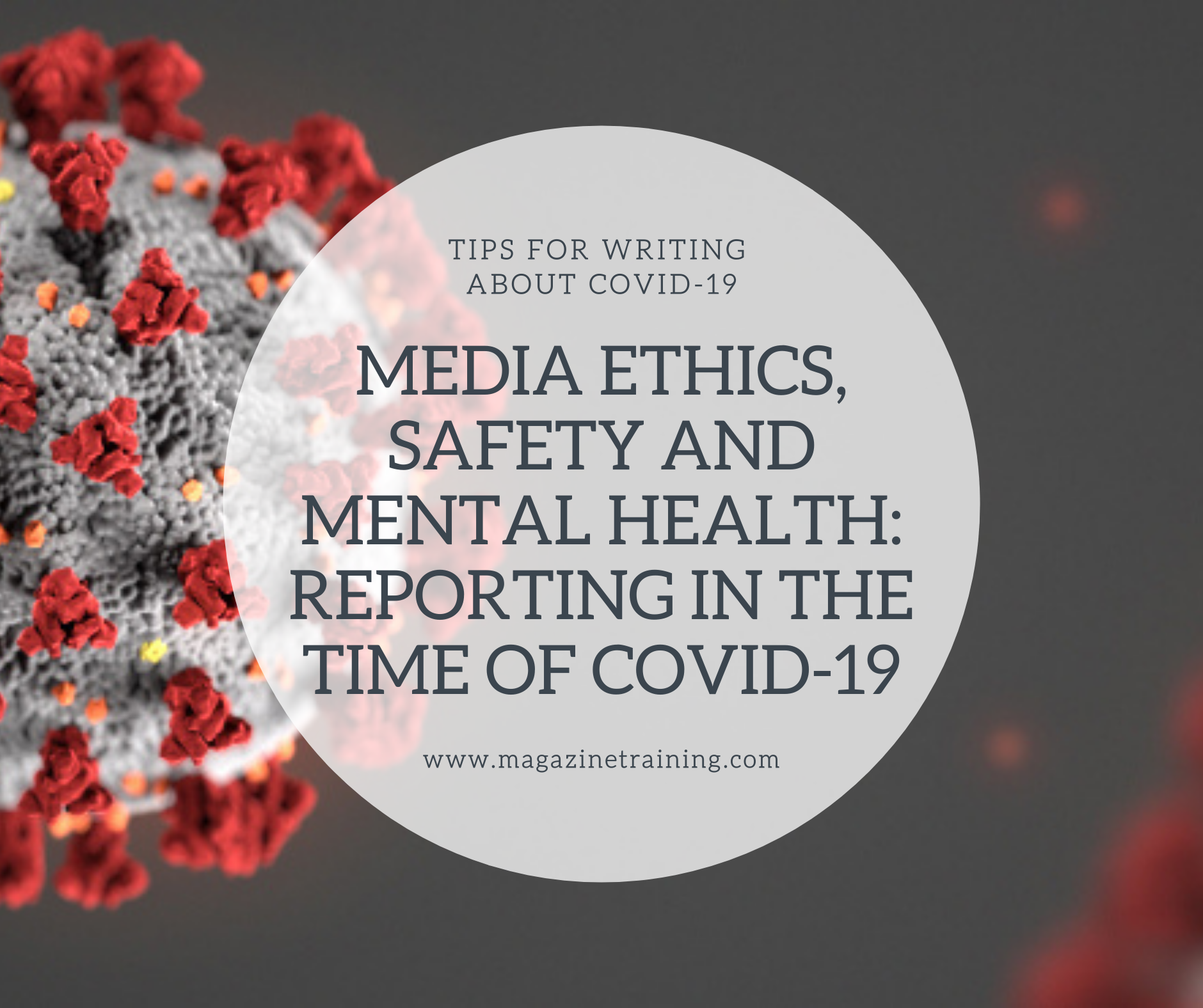
For much of the past decade, I have worked in journalism safety, as director of the International News Safety Institute, and latterly in media ethics, as CEO of the Ethical Journalism Network. In this time, my focus has been on trying to find solutions and share information to help keep our media colleagues safe and support them to do their jobs responsibly.
But in my experience, nothing compares with the events of recent weeks in terms of the global impact on media around the world of Covid-19 and the unprecedented scale of the story, and the demands it is making on our journalism and on us as journalists.
News organisations have had to reinvent decades of working practices in days. Large numbers of journalists are self-isolating or quarantined, travel has been reduced between countries and within countries. As Covid-19 spreads, so do the levels of anxiety around what we know and don’t know, who and what to trust, and how to stay safe – physically and mentally – as journalists working in uncertain times.
The following considerations are collated from my experiences, expertise, and conversations with colleagues. Please note that I am neither a lawyer, or a clinician. Some of the information below references other organisations doing valuable work in this area. This list is not exhaustive.
However, none of this is a substitute for the official information provided by the World Health Organisation or public health services and authorities in individual countries.
- Responsible and ethical journalism is vital to the reporting of Covid-19
Earlier this month, I tweeted a list of considerations for journalists covering coronavirus. All of them are underpinned by what, at the EJN, we regard as the core principles of ethical journalism: truth and accuracy, fairness and impartiality, humanity, accountability and independence. Here is an updated version of those suggestions:
Avoid sensationalism and scaremongering in language and images that could heighten anxiety; for instance pictures of empty supermarket shelves, stockpiling – which can inflame tensions and create more panic
Avoid racial profiling – you don’t need to repeat where the virus was generated each time you report new cases. Since writing this, the geographic focus of the virus has moved, but there are still examples of racism and discrimination in reporting against certain groups of people.
Ensure you protect affected people: do not identify names, images or identifying material without the permission of the relevant people. However, it’s worth noting that in recent days, a number of high-profile individuals have made the decision to reveal they have been infected with Covid-19
Be accurate and report facts; avoid rumour and try not to speculate; there’s a huge amount of misinformation circling, so be aware of how to spot and debunk misinformation. (See link to First Draft News below which has additional tips on managing and mitigating the spread of misinformation; they are not the only ones of course)
Seek expert opinions – from medics and scientists with relevant credentials – but note that scientific advice is frequently changing
Provide context and point people to authoritative and credible information sources and resources
Be careful when using maps showing case distribution – again use context and provide sourcing; and be aware of limitations of testing
Be cautious of using images of people in masks – ask are they newsworthy or simply attention grabbing? Note there is a significant degree of conflicting information regarding the efficacy of different kinds of masks and face coverings, and what levels of protection they offer [this paragraph has been edited on April 6]; as with so much of the information around Covid-19, expert advice should be taken and responses and reporting should be measured and give context.
First Draft News also compiled the following helpful list: https://firstdraftnews.org/long-form-article/coronavirus-responsible-reporting-and-ethics/. It also has excellent tips on debunking misinformation.
- Stay physically safe
As journalists, it’s our job to get the story. But this should not be at the expense of our health.
With Covid-19, the situation is changing so rapidly that journalists and news organisations must keep up to date with the advice of their relevant governments and authorities, both in terms of how that might impact on the media’s movement, as well as checking the World Health Organisation guidelines and those of their relevant health services.
Journalists should be aware of their own health constantly and if they experience any of the symptoms of the virus, they need to inform their employers, and should follow policies of the country or government where they are working
Journalists with certain underlying health conditions who fall into the at-risk groups should not cover this story.
Journalists need to be self-sufficient in such circumstances, and ensure they do not rely on the services or supplies of already affected communities which will be under pressure. They should carry out proper risk assessments and be aware of the kit and equipment they need for particular locations (this may vary by location and over time).
All journalists should have contingency plans which they have shared with their line managers in the event of them falling ill or finding themselves unable to leave the place they are working.
In addition, after speaking with a colleague who heads up safety at a major news organisation, they advised the following:
If journalists are reporting where the country’s population is forced to stay at home, then they should ensure they have the correct equipment – including N95 masks, nitrile gloves and safety goggles. They should also stay two metres from others. Clothing and equipment should be properly cleaned. See CPJ’s suggestion on microphone usage.
The Committee to Protect Journalists offers the following safety tips: https://cpj.org/2020/02/cpj-safety-advisory-covering-the-coronavirus-outbr.php
By Hannah Storm, Ethical Journalism Network
Related posts
Magazine Training International’s mission is to encourage, strengthen, and provide training and resources to Christian magazine publishers as they seek to build the church and reach their societies for Christ.

